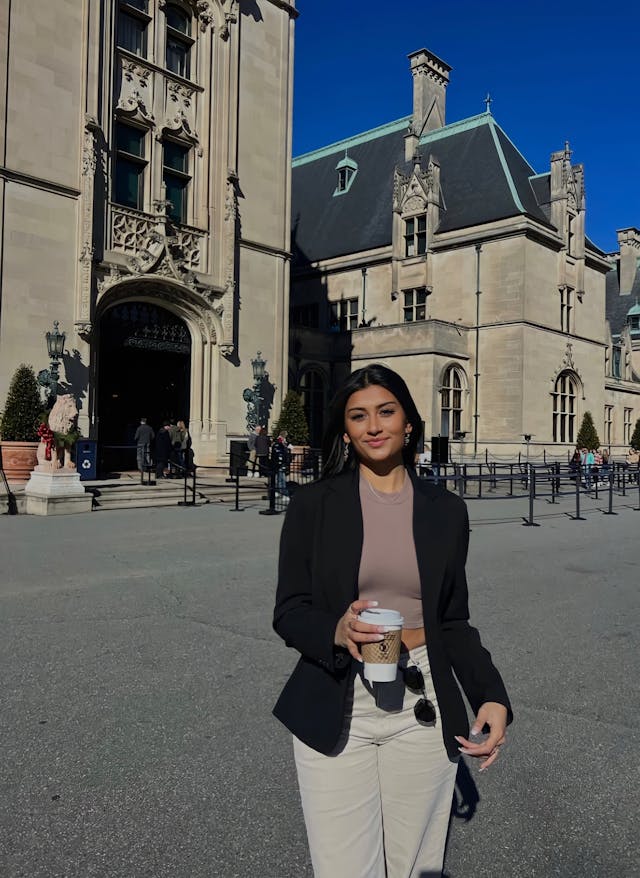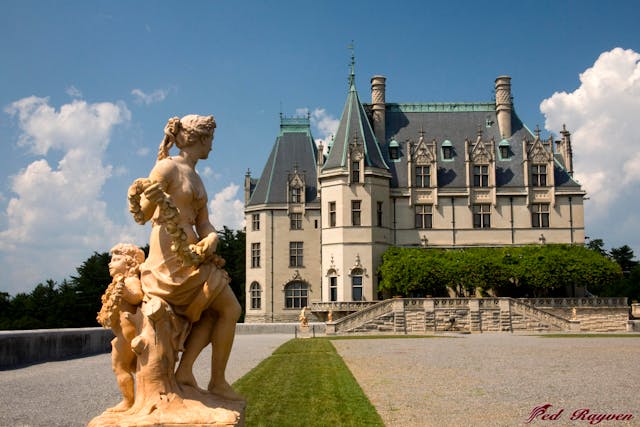When I travel, I always look for and support black-owned eateries since I’m a gourmet. However, since 2020, I have also made it an effort to research the black histories of the places I visit, including their neighborhoods and businesses. I brought up my interest in Asheville, North Carolina, with the tourist board while I was organizing my second trip. They were a great resource for information about Asheville’s black-owned companies.

Black History and Art Tours by Hood Huggers International
In Asheville, North Carolina, there is a black-owned company called Hood Huggers International. It provides tours of art and Black history. Dewayne Barton is the founder and CEO. Although he was born and raised in Asheville, he previously resided in Virginia and Washington, DC.
Mr. Barton is a poet, novelist, artist, and Gulf War veteran whose works have been shown at Duke University and the Smithsonian. He has spent more than 20 years being involved in the community. He works on the African American Heritage Commission, develops youth initiatives, and offers career training.
Anybody who rebuilds themselves while assisting in the transformation of their communities for the benefit of all is referred to as a “Hood Hugger” on the Hood Huggers website. African Americans who reside in Appalachia are referred to as “Affrilachia.” Hood Huggers International, an Asheville-based black-owned company, wants to restore these underprivileged African American communities via improved social entrepreneurship, communication, and connections. Hood Huggers tours generate income that are reinvested into these areas.
Due to the pandemic, there were only walking tours accessible downtown, despite the fact that driving and walking excursions are often offered. We all donned masks for the trip, which consisted of seven of us. Children are welcome to join the tours, which take place Thursday through Saturday. The cost of tickets is $15–39. Youngsters (0–3) get in free. There are tours offered for groups.
Highlights from the Tour with Hood Huggers
Before integration, the Stephen-Lee High School was a high school exclusively for African American students. That is where the gang got together in the parking lot. After a few songs by a female performer, Mr. Barton gave an introduction. He spoke about the neighborhood’s and the schools’ past for around twenty minutes. It was a very lively conversation. He gave an account of African Americans’ life in Asheville, North Carolina, both in the past and in the present. It’s the narrative of resiliency, as he puts it.
We went to the Mount Zion Missionary Baptist Church once we began the walking portion of the trip. James Vester Miller, a former slave who became a skilled mason, constructed it in 1919. His creations are offered for a walking trip through history.
He informed us that we were strolling by what used to be called “Black Wall Street.” Many of these neighborhoods have now gentrified. He said that many Black people left Asheville for other North Carolina communities in pursuit of employment and more inexpensive housing as a result of gentrification. The percentage of Black people decreased from almost 25% to roughly 11%.
We went past Triangle Park, which has stunning murals that chronicle Asheville’s Black heritage. Molly Must, an artist, painted it.
“The Block”
We kept walking till we reached “The Block.” It is situated in Downtown Asheville, just south of Pack Square. It served as the hub of the African American community in Asheville from the late 19th to the early 20th centuries. Just picture African Americans owning their own restaurants, pharmacies, retail stores, and physician offices. Mr. Barton claims that urban redevelopment initiatives from the 1950s to the 1970s had a part in this area’s decline.

That being said, the region is a component of the resiliency Mr. Barton mentioned. Establishments such as the YMI (Young Men’s Institute) Cultural Center were first operational in 1893, after the request of African American leaders to George Vanderbilt for funding to construct it. After the Board of Directors purchased it in 1906, it was owned by Black people in Asheville. It functions as a venue for exhibitions of art and cultural activities.
The YMI Cultural Center is also home to Noir Collective. During our journey, we had the pleasure of visiting Noir Collective. Beautiful artwork, apparel, jewelry, and purses made by African American artisans in the area were all within.
Despite not being a black-owned company, Benne on Eagle is an important part of the history of Asheville’s downtown and the “The Block” area. After passing it on the Hood Huggers tour, I went back the following Sunday for brunch.
Its address is Eagle Street, and the word “eagle” was added to the name in recognition of this historically significant area. The social life of The Block revolved on Eagle Street. Bars, restaurants, and meeting places with live entertainment and music were all along Eagle Street. Percy Sledge and James Brown went to places like the DelCardo Club and the Kitty Cat Club. The area descended into despair in the late 1980s and early 1990s, as was previously described. This was a relatively unexplored region until a few years ago. Benne on Eagle, which debuted in late 2018, is a part of the area’s thriving commercial revival.
In Ghana, the Andinkra symbol “sankofa” signifies “return and retrieve it.” That is the guiding principle of Benne and Eagle. Family members who had companies on The Block in the 1960s and 1970s make up the personnel.
Just as delicious as the cuisine is the scenery of Benne in Eagle. Look at the mural by renowned Asheville artist Joseph Pearson near the bar. He created historical depictions of Mount Zion Church and The Strand Movie Theater, two important enterprises from The Block, in collaboration with Hanan Shabazz, the restaurant’s culinary guru. One of the four women known as the “Legends of The Block,” Hanan Shabazz was a chef and business owner on the Block in the 1960s and 1970s, and her culinary impacts can still be seen today.
Oh, and the drinks and food were fantastic! I chose the short rib hash, which came with caramelized onions, cheddar cheese, jalapeño relish, and roasted potatoes. The potatoes were delightfully crunchy, and the short rib was soft and melt-in-your-mouth delicious. I enjoyed a vodka blueberry drink as well. I heartily urge you to check out the Benne on Eagle restaurant located in Asheville’s downtown The Block district.
Black-Owned Companies Outside of Asheville’s Downtown
When you’re in the mood for something sweet, take a short trip outside of Asheville’s downtown and go to
Creamery & Cupcakery Smallcakes
Smallcakes is a South Asheville-based Black-owned company. Situated in a retail and entertainment complex, this adorable bakery and ice cream business is only one exit away from the Asheville regional airport. There are more than 250 different cupcake flavors available. Additionally, they provide 14 varieties of freshly made gourmet cupcakes every day. Their 60 changing flavor ice cream is created in-store.
From downtown Asheville, the journey there took me around twenty minutes. The vanilla cupcake with pink lemonade icing and the red velvet cupcake were my choices. The trip was worthwhile, I must admit. The business had a warm, welcoming family vibe, and the cupcakes were delicious—big and moist.
The Haywood Lounge
I didn’t participate in the nightlife in Asheville since I was traveling alone. However, I am aware of pals that had fun at this club and pub. I’ve heard the wings and cocktails are excellent.
Café Tiger Bay
The Battlecat coffee shop in West Asheville is home to this Black-owned company in Asheville, North Carolina. It’s characterized as a blend of West Indian, Latin, and “East Style” BBQ tastes.
Fusion Day Spa
bodywork, foot soaks, facials, and therapeutic massages. I’ll have to check this out when I return since I like a good spa
Supporting Black-Owned Businesses: A Path to Cultural Understanding and Economic Empowerment
From Benne on Eagle, with savory food, to Smallcakes, with sweet treats, my journey through black-owned businesses in Asheville, N.C., became more than a culinary adventure; it felt like moving through time, culture, and community resilience. The educational tours Hood Huggers International offers each provide a distinct window into the rich Black heritage and entrepreneurial spirit of this city.
By visiting and stopping at these various businesses and establishments, guests can join in the economic empowerment of Asheville’s black community while building an appreciation for the diverse tapestry of culture within the city. Whether a visitor is interested in history, art, food, or just looking to be introduced to a black-owned business and their hospitality, Asheville has a wide range of opportunities that are worth exploration and patronage.
Supporting black-owned businesses is no longer just a personal choice; it is a strong statement of solidarity as we move forward in conversations and actions for racial equity and economic justice. This is one concrete way by which we can really help preserve and celebrate black culture, history, and entrepreneurship here and into the future, both in Asheville and beyond.
So, next time you come to this fine mountain town, I want to invite you to step off the beaten path and into the vibrant world of black-owned businesses in Asheville, N.C. From guided tours and culinary delights to relaxing spa treatments, you’ll find a part of the city rich in history, flavor, and community spirit. By doing this, not only will you improve your own travels, but you will also contribute toward a more inclusive and fair local economy.



